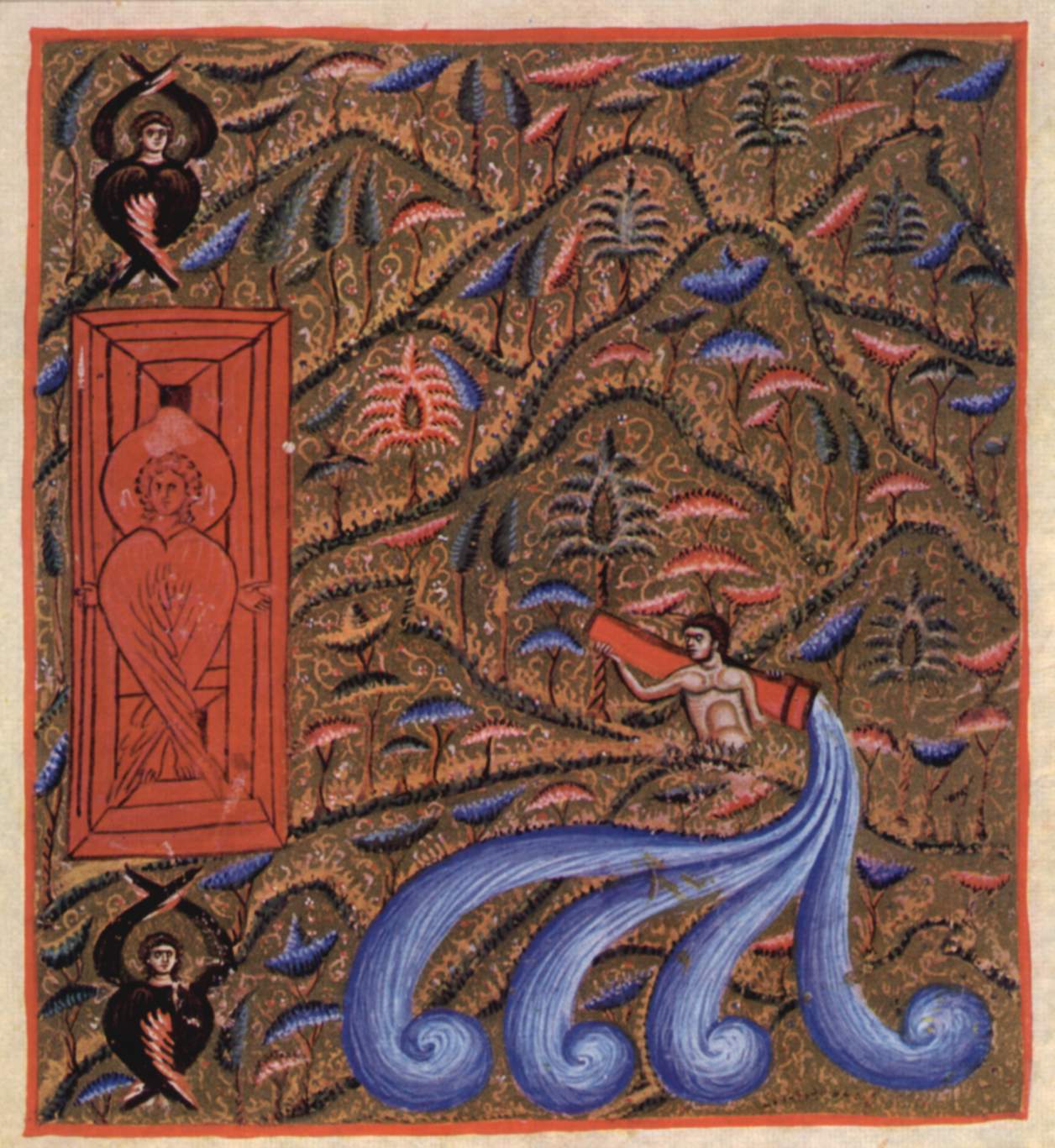Fifth Wednesday of the Year (13 Feb 2019)
Homily of Fr. Paul Panaretos, S.J., 8-day retreat
Mystery and Our Mysteries
Creation of humans may readily evoke Genesis’ first presentation of creation we heard yesterday. The second account enriches images of God—and us. Contrasting the rhythms in the accounts may help. The rhythms of Chapter 1 are elegantly simple: God said…and there was; evening and morning followed—the first day1 and each succeeding one. In Chapter 1 elements are created before plants and animals then humans; and the humans are equals, male and female.
 In this reading from Chapter 2 one human is created before rain watered shrub and grass from the earth. Also God Eternal2 is an artisan-creator forming a human from clay of the ground in contrast to God who only spoke: “Let us make human beings in our image, after our likeness.”3 The humans God creates—we will hear tomorrow—speak and feel. That focuses God’s likeness in whom we are made.
In this reading from Chapter 2 one human is created before rain watered shrub and grass from the earth. Also God Eternal2 is an artisan-creator forming a human from clay of the ground in contrast to God who only spoke: “Let us make human beings in our image, after our likeness.”3 The humans God creates—we will hear tomorrow—speak and feel. That focuses God’s likeness in whom we are made.
Genesis Chapter 1 and Chapter 2 contrast the ideal and the actual condition of creation and us.4 That may be happening in our prayer: God may be a bit nearer our minds and hearts. We may be encountering God personally forming us and not distant from our lives. Those and more reveal God as Mystery in whom we discover ourselves.
Mark’s gospel offers Jesus as Mystery. Jesus told his disciples, The mystery of the kingdom of God has been granted to you.5 The mystery is no problem to solve; it is the person of Jesus. Mystery & person: we may rarely align them. It may help to consider a person each of us knows reasonably well. The person I bring to mind I cannot know fully. Another will always surprise, astonish or bewilder us: whether on occasion or, as with some, most of the time. Why would we think it different with Jesus? Part of it is how many in the gospels named Jesus.
Jesus is so often addressed as Teacher in Mark’s gospel that we may think we are supposed to understand him. Jesus, though, is a strange sort of teacher in Mark’s gospel. Rather than persuade his questioners he issued pronouncements: You nullify the word of God in favor of your tradition that you have handed on. You do many such things.6 Jesus repeated himself to his disciples when they ques-tioned him about his parable: he elaborated a bit but not much. His disciples did not need to be persuaded; yet with them Jesus deflected understanding: Are even you likewise without understanding? They were not given understanding; Jesus gave them himself! Like them we can keep receiving him in the varied way Jesus gives himself to us. Like every relationship one with Jesus evolves as it grows.
Being with Jesus as with a friend or another we trust and who trusts us is not beyond us. We may need courage and be deliberate. When we are courageous and deliberate we enjoy a felt-knowledge, an intimate communion. Our knowing communion may escape words; it won’t escape us.
Relationship with the divine is encounter not mere head-knowledge. To encounter one who accepts us completely; who formed me from before I can remember; and who transforms me each moment offers assurance that understanding is unable to offer. Keep giving yourselves to the encounters with the Eternal One who was born in time for us; share what you feel and free yourself to be transformed by Mystery into your mystery. share what you feel to free yourself to be transformed by Mystery into your mystery. That will make your drive to Guelph worth it!
___________
- Genesis 1.3, 5.
- The Jewish Publication Society translation that is faithful to the Hebrew and helpful to moderns. W. Gunther Plaut & David E. Stein, eds. The Torah: A Modern Commentary, Revised. Accordance electronic ed., (New York: Union for Reform Judaism, 2006).
- Genesis 1.26.
- The Torah: A Modern Commentary, Revised, pp. 17-18.
- Mark 4.11.
- Mark 7.13 from yesterday’s gospel reading.
___________
Wiki-images Paradise and Jesus Teaches by the Sea PD-US
_-_James_Tissot_-_overall.jpg)
No comments:
Post a Comment